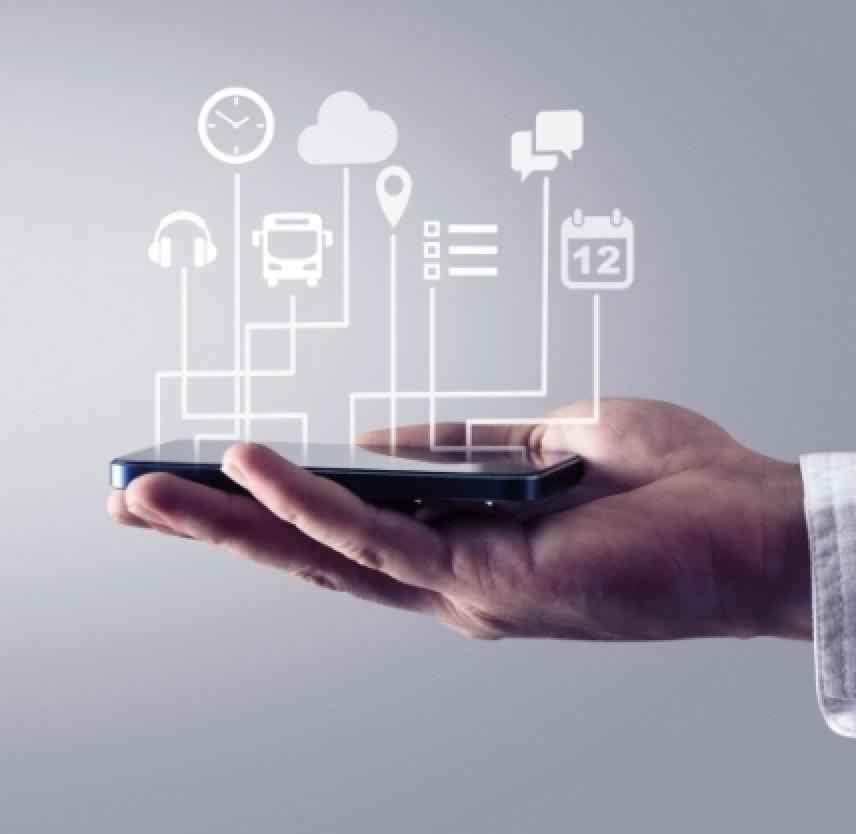
Brain injuries can change one's ability to organize and plan, get started on tasks or activities, and remember dates, times, or how to do things. There are many tools that can be used to compensate for these changes. Tools can assist memory, provide support for tasks, and create organizational structure. They can also promote independence and reduce confusion.
What Are Support Tools?
Support tools help individuals with brain injury compensate for the cognitive challenges that may occur after injury. Some people prefer paper and pencil tools such as notepads, memory books, post-it notes and calendars. Other people prefer to use electronic tools such as watches, tablets or smart phones, as well as auditory tools such as earphones.
Calendar
A calendar, especially if it is placed in a central area such as a message center, is helpful in planning and recording events.
When all family events are recorded on a calendar it can help to reduce confusion and organizational issues for the family member with a brain injury.
Earphones
Noise cancelling earphones or ear buds can reduce distractions and increase focus and concentration.
Light and noise can be difficult for some people with brain injury. You might consider some of the following tools when sensitivity is an issue:
- Sunglasses for light sensitivity
- Dimmers on light switches
- Pre-recorded selections of soft, relaxing music
Mobile Devices
Mobile devices are evolving with new features to support people with brain injury every day. If your family member has the appropriate level of skill, mobile devices offer the widest range of support of any tool. Applications “apps” provide:
- Calendars with reminders and invitation features
- Maps with step-by-step directions
- Scheduling and routine apps allowing you to customize routines, add pictures, and audio instructions.
- Money-tracking supports
- Bus and subway routes
More helpful apps are on their way every day.
Day Planner
A day planner or a simple notebook can be helpful to plan, record, and check off daily activities. It reduces mental fatigue and helps with organizational challenges.
Notes
Simply writing things down and posting a note in the car, on the bathroom mirror, or the desktop can help with confusion, memory and organizational issues.
Notes are helpful for the occasional reminder. However, it’s best to use notes together with an organizing system where everything is in one place for persons with brain injury. Scattered or lost notes can increase frustration.
Watches
Watches with easy-to-set alarms or talking features can help with initiation and organizational challenges such as getting started in the morning or making it to appointments on time.
Talking watches are especially helpful when there is confusion about what to do next. A watch can be set at a certain time with a message such as:
“It’s 7 am. Go to the bathroom. Read your grooming routine to start your day.”
Cell phones
Cell phones can help with organizational, memory and initiation issues associated with brain injury. Cell phones can prompt activities with a message and an alert using the calendar feature. Some cell phone models are specially designed for persons with physical or cognitive challenges. The simplified models feature large buttons, large text, and health related apps.
"Paper and Pencil" Tools
Paper and pencil tools are inexpensive, easy to use and come in many different formats.
- Message Center
Having one place where family members can communicate and find information can be really helpful. - Calendar
Note family events and appointments. Cross off each day to reduce confusion. - Lists
Lists help people to remember steps and things to do. - Post-it Notes
Post-its are useful for simple reminders and are easy to put up anywhere. Use only a few at a time. Keep it simple and organized. - Day Planner
A day planner is a personal calendar, with events and activities. It can also be a log of what happened each day. - Line Guides
A rule or a line guide will help a person keep his or her place when reading, paying bills, or working down a list.
Auditory Tools
Some auditory tools such as earplugs can help remove distractions from sounds. But other auditory tools that make sounds can be helpful for reminders.
- Earphones/Earplugs
Noise cancelling earphones or ear buds can reduce distractions and increase focus and concentration. - Watch/Talking watch
Watches with easy-to-set alarms or talking features can help. Talking watches are especially useful when there is confusion about what to do next. A watch can be set at a certain time with a message such as: "It's 7 am. Go to the bathroom. Read your grooming routine to start your day." - Cell phone
Cell phones can prompt activities with a message and an alert using the calendar feature. The simplified models feature large buttons, large text, and health related apps.
SMART Tools
SMART tools, including mobile devices are evolving with new features to support people with brain injury every day. If your family member has the appropriate level of skill, mobile devices offer the widest range of support of any tool.
SMART phone/personal device/tablet apps provide:
- Calendars with reminders and invitation features
- Maps with step-by-step directions
- Scheduling and routine apps allowing you to customize routines, add pictures, and audio instructions.
- Money-tracking supports
- Bus and subway routes
- New apps are being developed all the time.
Learn More
There is always something new to learn about brain injury. The Center on Brain Injury Research & Training provides updated information and useful trainings to help you improve your skills to support someone with a brain injury.
Visit cbirt.org for additional help and resources >
